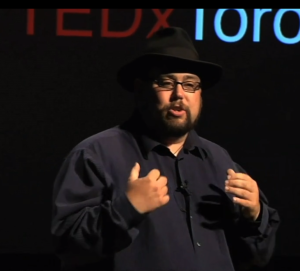If you have a history of suicidal thoughts or know someone who died by suicide, you may want to look into a new research project called Our Data Helps by Qntfy. You can donate social media data (from online activity) and/or fitness & sensory data (from wearable devices) to help researchers learn more about why suicides happen and how they can be prevented. The project will analyse the language, physical data, and media patterns of people who sign up to help the project.
Category Archives: anxiety
Technology-Assisted Treatment
Many psychology researchers, including the Veterans Administration, are studying the effects of mental health applications. While indiscriminate screen time is widely known to reduce peoples’ focus, some research indicates that consistent, intentional use of some mental health apps tends to boost self-awareness; effectiveness; and happiness. The Veterans Administration is specifically studying the app PTSD Coach, which I would like to use with a client. Please let me know if you would like to participate in that process! Here are some applications I already find useful with many of my clients:
- Narrative Therapy Questions: helps the participant conduct a deep self-interview about their preferred life direction and related obstacles
- Calm: 100+ guided meditations to choose from. The app will track the dates and lengths of of your meditations
- Relax: helps practice diaphragmatic breathing, which is good for nervous system regulation and panic-attack prevention
- Mood Tracker: charts symptom severity/remissions/patterns based on pre-programmed OR customized data schemes
Daring Greatly
I am currently re-reading the wonderful book Daring Greatly, by Brene Brown. If I only had a single therapeutic tool or paradigm, Dr. Brown’s work may be the one. Dr. Brown examines yucky problems like scarcity, shame, and defense mechanisms with finesse and humor. For those of you who have not seen her first viral video, here it is: vulnerability .
Trauma and Restoration
When you experience a negative memory, do you experience an inability to move or take action? These “stuck” or “frozen” states are indicative of trauma. The trauma may be related to a single overwhelming event and/or it may be from a developmental disturbance, like childhood abuse or neglect. Trauma is about powerlessness, not being able to DO something helpful within the original situation. A traumatized person’s challenge is to re-train their mind AND body to take calm action when they are triggered into these states. Sometimes, traumatized people over-react to situations, understandably not wanting to be revictimized. Some interventions that help relieve (rather than re-live) trauma are: meditation (noticing disturbing mind/body cues while regulating breathing and heart rate); identifying and using self-soothing stimuli (perhaps a comforting smell, texture, visualization); and articulating the trauma experience within a safe and responsive context.
I recently completed a continuing education training with Dr. Bessel van der Kolk, author of The Body Keeps the Score.
Lessons from Improv
I am currently taking an introduction to Improvisation Comedy class. Improv is a fun way to practice…
- awareness: it’s hard to keep people’s attention if your own attention is wandering
- listening: respond to a group story rather than one’s own preoccupations
- acceptance: in improv, you working as a team–and other people have some weird ideas
- healthy risk-taking (AKA healthy vulnerability): it gets the dopamine going; it builds competence and resilience
Externalizing Anxiety
An anxious computer programmer reprogrammed his anxiety. First, he outlined his worries into a computer program. Then, the program emailed him anxious messages throughout each day. The programmer read the messages–as if they were comical spam messages. This process helped him emotionally distance from worry and deconstruct anxiety in real time.
The original audio story can be found here: here
Sensation-Seeking
I recently completed a training with Dr. Ken Carter about Sensation-Seeking behavior. We explored healthy and/or problematic sensation-seeking constructs like adventure & thrill seeking; novelty & unique experiences; disinhibition; and boredom susceptibility. Some emerging research indicates that healthy sensation-seekers reduce anxiety through their sensation-seeking and are less likely to experience PTSD in their lifetimes. However, unhealthy sensation-seekers may be more prone to addictions.
Everyday Leadership
In this 6 minute talk, Drew Dudley explains how leadership does not require particular titles or a specific amount of economic or political power. He discusses the sometimes unknown, yet profound, influence of everyday people.
Play Time
I attended an InterPlay workshop recently, based on the principals of Interpersonal Neurobiology. We experienced firsthand how “mindfulness” can be fun. And “playfulness” is not an escape from reality. In this workshop, we played (connected, laughed, moved) and built (inter)personal awareness. Intentional play is an antidote for depression and anxiety.
Good Advice
I went to a show over the weekend. I expected to hear some good music and poetry. These expectations were exceeded when I received this letter on the merch table: After 8 Years of Facing my Own Mental Illness, by Shira.

